
by World Moms Blog | Oct 22, 2014 | 2014, Africa, Awareness, Being Thankful, Caring, Casting a Wider Net, Communication, Economy, Education, Girls, Government, Guest Post, Helping, Human Rights, Humanitarian, Humanity, Inspirational, International, Life, Loss of Child, Media, Motherhood, Nigeria, Older Children, Poverty, Prejudice, Relationships, Safety, School, Social Equality, Terrorism, Tragedy, Women's Rights, Working Mother, World Mom Feature, World Motherhood, World Voice
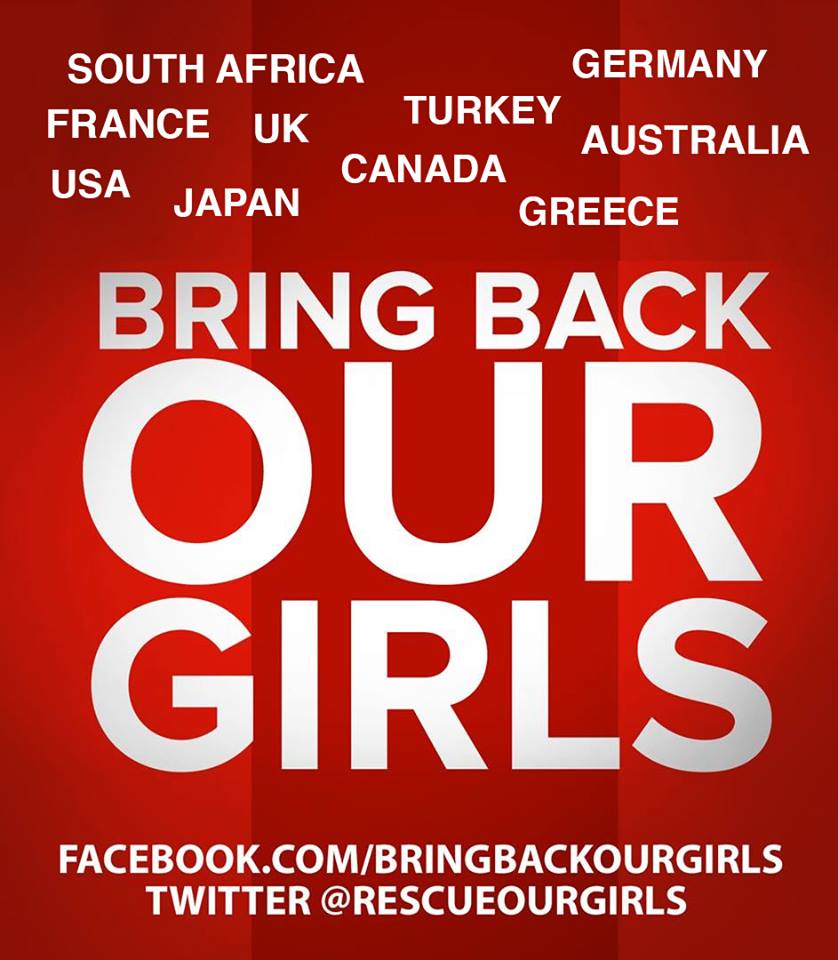 “My daughter said she was going to go to school so that she can wipe away my tears. How is she wiping my tears away in the den of the terrorists?”
“My daughter said she was going to go to school so that she can wipe away my tears. How is she wiping my tears away in the den of the terrorists?”
-mother of one of the #ChibokGirls, abducted on April 14th, 2014, speaking on Day 188 of their abduction -October 19th, 2014
As I looked at her I realized that all this woman’s hopes and aspirations rest on her daughter. For most of the poor people in this part of the world, children are like a source of pension; they are the ones that will help you in the future. They are the ones that will take care of you in your old age, when you are unable to look after yourself. They represent life. As I looked at her I also realized that her daughter means more to her than I can ever imagine. Her daughter is her everything. A source of hope.
These parents are ready to give their lives for their children to have an education. That was what the #ChibokParents did. Amidst the insecurity in Nigeria, they still wanted their children to be educated to better their positions in life. They knew the only way to break the shackles of poverty was through education. For daring to send their children to school to have a better life, instead they have been punished.
These children grow up to not only take care of their parents but siblings as well so that a generation of people who have survived the shackles of poverty would emerge.
For some, poverty is going to school in the morning without breakfast and returning home not expecting lunch but still striving everyday to be in school so that one day you will look back and say I SURVIVED (I AM A SURVIVOR).
I remember one of the fathers at one of our Sit Ins for the #BringbackOurGirls campaign—which started on April 30th with a protest demanding for the rescue of #ChibokGirls—saying he does not have a Television. All he has is a Radio from which he gets to hear of our activities. I wept! In this day of iPads, Tablets, iPhones and what have you, someone does not have a simple television that most of us take for granted.
So now you can begin to understand that to the #ChibokParents these girls are much more than daughters, they are future benefactors
A lot of parents, especially mothers, are forced to live a life of servitude and poverty in order for their children to be educated. The education that is taken for granted in most developed countries is not so in Nigeria and many other African countries.
I remember growing up and how my parents had to struggle to make sure we were educated. We often had to go without food when the situation grew dire but never were my school fees unpaid. I remember my father trekking long distance to buy a textbook I needed badly because the money was not enough for him to pay for a bus. All the suffering was for the children to be able to break the vicious cycle of poverty and one day to be able to take care of ourselves and also take care of our parents and siblings.
A lot of parents invest all they have in their children. For those who are poor, they do not have cars, houses or any investments. All they have are their children. Can you imagine these children being abducted, as is the case with the #ChibokGirls, abducted from school, where they wanted to get an education and make life better for themselves and their families? When these children of the poor are abducted and taken away, the future of a whole generation also is taken away.
As I looked at the woman with tears streaming down her face, all I could see was my own mum, who had to be the head-of-household, who worked all day and night to ensure I had an education. I look back to the days when there was no food to be eaten and yet we found our way to school. I thought of what a burden it must have been for my parents to get us educated, to sacrifice all that they had.
While some of my parent’s contemporaries were busy enjoying life in the way they could with what they had, my parents tightened their belt to make sure that we, their children, had an education and of course today we are their pension. If any of us had been abducted while seeking an education, where would we be today?
As I stood watching the Chibok mother, all I could think about was my mother struggling to give her children the life she did not have and how hard she worked to provide that for us. I thought of my mother, now living in the lap of luxury because she worked so hard four sake. As I stood looking at the Chibok Mother, I realized she too must be allowed to break the shackles of poverty. She too must live in comfort, as her daughter promised her. Her tears must be wiped away. As I stood looking at her I realized that I cannot stop demanding for the rescue of the #ChibokGirls, for that Chibok mother who has given her all, hoping that one day her tears would be wiped away.
I realized that I must demand the rescue of the Chibok girls.We all must.
Demanding the safe return of the Chibok girls to me is like making a demand for the ME that was 23 years ago. As I stood I realized that no matter how hard it gets, no matter how much we are intimidated and harassed, no matter the threat of arrest from our government, I cannot afford to give up on the #ChibokGirls.
To give up on the #ChibokGirls is to give up on myself (the WHO that I have become) and to give up on the mother with tears streaming down her face, waiting for her daughter, who promised to wipe away her tears.
This is an original, Guest Post for World Moms Blog from our sister in Nigeria and mother of two, Aisha Yesufu.
Aisha Yesufu was born in Kano, Nigeria. When she turned 40, in December 2013, she decided it was time to devote her life fully to the services of others. As she describes it,
‘The first 40 years of my life I devoted to myself, so I could be financially independent and help others. But they say: you can’t help the poor by being poor yourself, so the next 40 years, God willing, I am going to devote to others; for me, a full life will be based on what positive differences I have made in the life of another.”
And in came the unfortunate tragedy of the abduction of the #ChibokGirls. Following their abduction, on April 14th 2014, Aisha joined a group of like minded people to demand the rescue of the 219 school girls, who still today remain in the hands of the terrorists. These girls, between the ages of 16 to 18, were abducted from their school, in their quest for knowledge. The group known as the #Bring Back Our Girls campaign has been able to push the issue of their rescue in public discussion both locally and internationally.
Aisha is the coordinator of the daily Sit In for the #BringBackOurGirls campaign group. The group has, without fail, come out daily since the 30th of April, 2014, despite all forms of intimidations and harassment by sponsored persons.
To get involved in the conversation and learn more about the plight of the 219 Nigerian School Girls, visit: #BringBackOurGilrs
World Moms Blog is an award winning website which writes from over 30 countries on the topics of motherhood, culture, human rights and social good. Over 70 international contributors share their stories from around the globe, bonded by the common thread of motherhood and wanting a better world for their children.
World Moms Blog was listed by Forbes Woman as one of the "Best 100 Websites for Women 2012 & 2013" and also called a "must read" by the NY Times Motherlode in 2013. Our Senior Editor in India, Purnima Ramakrishnan, was awarded the BlogHer International Activist Award in 2013.
More Posts

by Nadege Nicoll | Oct 17, 2014 | 2014, Awareness, Communication, Nadege Nicoll, Older Children, World Motherhood, Younger Children
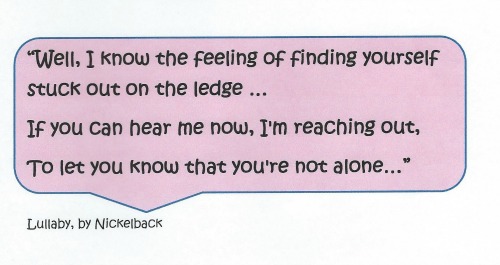
What do I know about depression? Well, nothing. That much I know! But still, I feel compelled to write about it. Because I have only recently woken up to the devastation and despair associated with this illness and I am now looking at depression with a different set of eyes. With true compassion and empathy, where I was unable to understand before and could barely share a little sympathy. (more…)
Nadege Nicoll was born in France but now lives permanently in New Jersey with her family. She stopped working in the corporate world to raise her three children and multiple pets, thus secretly gathering material for her books. She writes humorous fictions for kids aged 8 to 12. She published her first chapter book, “Living with Grown-Ups: Raising Parents” in March 2013. Her second volume in the series just came out in October 2013. “Living with Grown-Ups: Duties and Responsibilities” Both books take an amusing look at parents’ inconsistent behaviors, seen from the perspective of kids. Nadege hopes that with her work, children will embrace reading and adults will re-discover the children side of parenthood. Nadege has a few more volumes ready to print, so watch this space…
More Posts - Website
Follow Me:



by Melanie Oda (Japan) | Oct 16, 2014 | 2014, Awareness, Being Thankful, Child Care, Childhood, Cultural Differences, Culture, Expat Life, Eye on Culture, Family, Health, Hospital, International, Japan, Kids, Life Balance, Life Lesson, Living Abroad, Milestones, Motherhood, Parenting, World Motherhood, Younger Children
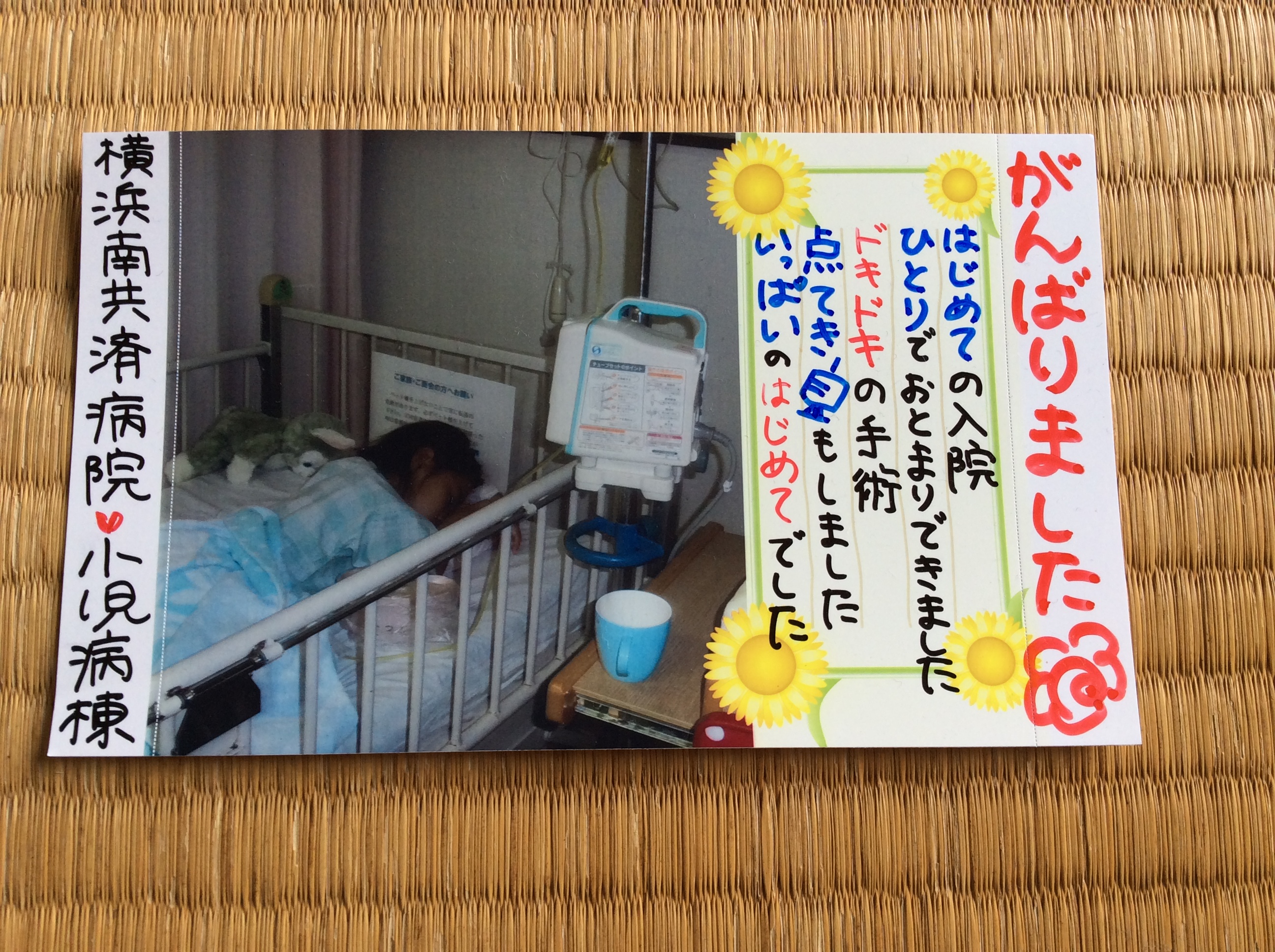 My 6 year-old daughter had her tonsils and adenoids out over summer vacation. She had been diagnosed with sleep apnea several months earlier and since nothing else was helping, finally I reluctantly agreed to the surgery.
My 6 year-old daughter had her tonsils and adenoids out over summer vacation. She had been diagnosed with sleep apnea several months earlier and since nothing else was helping, finally I reluctantly agreed to the surgery.
I was reluctant because hospital “culture” in Japan is very different from the US, where I am from, and because I knew I would be up against another cultural wall in regards to care for my older child.
This surgery, that requires a one-night stay in the hospital in either the US or UK (according to some quick research on my part,) here in Japan means seven nights in the hospital.
Since hospital rooms are shared, parents are not allowed to stay over night for any except the youngest of patients. Parents are expected to provide clean laundry and cutlery for the patient every day.
The children’s ward had a strict daily schedule, with times when they we’re confined to their beds (which literally had bars like a prison cell,) and times when, if they were well enough, they were allowed to use the playroom.
But absolutely under no circumstances whatever could they leave the children’s ward. And visitors under the age of 15 were not allowed in the ward.
This was a conundrum for me. I have a 9 year old son, who was on summer vacation at the time, and a husband who works 12 hour days, on a good day.
Hospital culture in Japan is strangely at odds with the wider culture in general. A high percentage of children co-sleep with their parents well into their elementary years. That is the cultural norm.
However, the hospital where my daughter had surgery, would not allow parents to spend the night with children over 2 years old.
This particular hospital allows parents of small children to stay until they fall asleep, but for my daughter, that may actually have been worse. Come lights out at 8pm, there was more crying in the children’s ward than from the nursery down the hall.
I had another child waiting at his friend’s house or at Baba’s (grandmother’s) house for me to come home, after all. My husband tried to get home from work at a decent hour, but I think he made it by 7pm once.
The day after the surgery, when my daughter was still feeling ill from the effects of the anesthesia and started bleeding from her nose, I was very grateful that she was in the hospital where I could have a professional attend to any concerns with the push of a nurse-call button.
Around Day 3, though, I could feel myself beginning to fall apart, fiber by fiber. The stress and plain old-fashioned exhaustion were starting to get to me.
My son at home was starting to feel the effects of being shuffled from place to place numerous times a day. My daughter wasn’t sleeping well and wanted to come home. I begged the doctor to discharge her a bit early, even a few hours would be great. His response was that the other child in the same room who’d had the same surgery on the same day was not recovering as well, and it would be upsetting for her if mine left earlier.
Excuse me, what? I thought, blinking several times, sure I had misheard. But I hadn’t.
On the day she was finally discharged, the nurses and staff presented her with a postcard, complete with a photo of her post-op, “to remember them by.” My first instinct was to burn it. Who would want to remember this? But I kept it, an ironic little reminder of the Japanese tendency to have “entrance” and “exit” ceremonies for everything.
I was reminded of a speech the principal of a junior high gave to the student body to announce that I was leaving: “People enter our lives, and at some point we must be parted. We should cherish each of these events.” Perhaps one day my daughter will value the card.
For now, she gets angry every time she sees it. The poor little girl has been waking up at night just “making sure I’m at home” for the past several weeks.
But now I look at the card and I feel profoundly thankful that my kids are, for the most part, healthy and happy. I don’t know how parents, who have to juggle (and it is a juggling with knives-type event, not harmless bean bags) a child’s hospitalization—along with the mundane tasks of everyday life that just keep coming, even when we are least able to deal with them—do it.
I say a little prayer for you every night, moms I do not know, and wish you strength and patience and space to breathe.
Has your child ever been hospitalized? What was it like for you, as a parent?
This is an original post to World Moms Blog from our mother of two in Japan, Melanie Oda.
The image used in this post is credited to the author.
If you ask Melanie Oda where she is from, she will answer "Georgia." (Unless you ask her in Japanese. Then she will say "America.") It sounds nice, and it's a one-word answer, which is what most people expect. The truth is more complex. She moved around several small towns in the south growing up. Such is life when your father is a Southern Baptist preacher of the hellfire and brimstone variety.
She came to Japan in 2000 as an assistant language teacher, and has never managed to leave. She currently resides in Yokohama, on the outskirts of Tokyo (but please don't tell anyone she described it that way! Citizens of Yokohama have a lot of pride). No one is more surprised to find her here, married to a Japanese man and with two bilingual children (aged four and seven), than herself. And possibly her mother.
You can read more about her misadventures in Asia on her blog, HamakkoMommy.
More Posts

by Susan Koh | Oct 9, 2014 | 2014, Awareness, Childhood, Domesticity, Family, Husband, Life Lesson, Marriage, Motherhood, Parenting, Relationships, Singapore, Stress, Susan Koh, Womanhood, World Motherhood, Younger Children
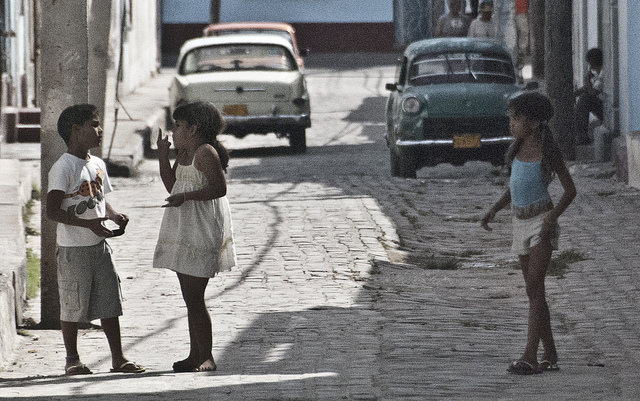 Among all the parenting rules in the book, no quarreling in front of the kids must rank pretty high up there. But, it’s the one that my husband and I have been flouting a lot lately, when our little five-year-old is around. And while we don’t choose to quarrel in full view of Sophie, arguments sometimes get over heated with voices raised and a quarrel ensnares. And when our voices rise, Sophie catches our bickering.
Among all the parenting rules in the book, no quarreling in front of the kids must rank pretty high up there. But, it’s the one that my husband and I have been flouting a lot lately, when our little five-year-old is around. And while we don’t choose to quarrel in full view of Sophie, arguments sometimes get over heated with voices raised and a quarrel ensnares. And when our voices rise, Sophie catches our bickering.
As much as we try to avoid conflict in our marriage, this is real life, where we have our failings keeping our tempers in check. As they say, familiarity breeds contempt.
I’m not proud that my daughter has to witness it, especially since she has a sensitive soul and picks up on the negative vibes quickly. And it’s even worse, when she thinks that mummy and daddy don’t love each other anymore because of our quarreling.
Last week, hubby and I had a heated arrangement over my complete lack of organizational abilities, which sent me flying into a rage because I was already halfway through packing. With more to and fro with his expectations and my explanations, neither was ready to step back or cool off. Before we knew it, there was a shouting match.
Sophie heard the commotion and came to my room and from the corner of my eye I could see her fear.
Intermittently, my little one even jumped to my defense and told daddy to stop scolding me because I was already trying my best to pack. Her words, though comforting, also felt like a sting and made me feel so guilty that she had to see the two people that she loved most in such an ugly argument. After I calmed down, hubby finally decided to help me pack as well and we both got working.
After 15 minutes little Sophie came back with a smile on her face and said:
See mummy and daddy you’re working together. You are a team now.
Those are words of gold coming from my five-year-old.
After we were done packing, we gave each other hi-fives for work well done. I even apologized for my lousy attitude to hubby and thanked him for helping, making sure that it was within Sophie’s ear-shot. I could see her beaming away.
As a mum, I sometimes forget that kids learn what they see and not what they hear. As much as we try to teach them to behave in a certain way, it’s what we model that will be a standard for them. And while quarreling in front of the kids is still a no no in my opinion, children learn that parents are also human. Parents can make mistakes but what matters is having the humility to apologize and ask for forgiveness.
At the end of the day, we are far from being perfect and can only endeavor to be better dads or mums for our kids.
This is an original post for World Moms Blog from our writer in Singapore, Susan Koh of A Juggling Mom.
The image used in this post is credited to Matt Smith and holds a Flickr Creative Commons attribution license.
Susan is from Singapore. As a full-time working mom, she's still learning to perfect the art of juggling between career and family while leading a happy and fulfilled life. She can't get by a day without coffee and swears she's no bimbo even though she likes pink and Hello Kitty. She's loves to travel and blogs passionately about parenting, marriage and relationship and leading a healthy life at A Juggling Mom.
More Posts

by ThinkSayBe | Oct 3, 2014 | 2013, 2014, Awareness, Babies, Childhood, Communication, Computers, Discipline, Education, Entertainment, Environment, Family, Girls, Kids, Life, Life Balance, Motherhood, Nature, Parenting, Technology, ThinkSayBe, Uncategorized, USA, World Moms Blog, World Motherhood, Younger Children
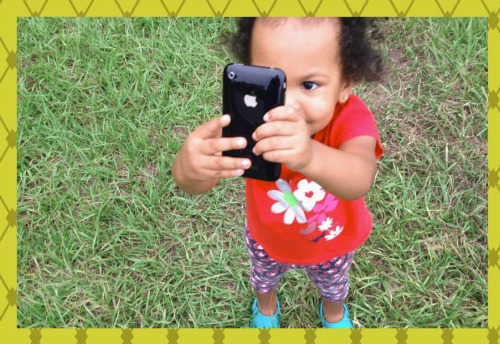 “Yes please, yes please, yes pleeeeease!” is what I hear almost every time my toddler sees or hears my phone. If she does not get it, she isn’t too happy. She may move on to playing with something else, but sometimes comes back pointing at where she last saw my phone, and says “yes please!” again. (more…)
“Yes please, yes please, yes pleeeeease!” is what I hear almost every time my toddler sees or hears my phone. If she does not get it, she isn’t too happy. She may move on to playing with something else, but sometimes comes back pointing at where she last saw my phone, and says “yes please!” again. (more…)
I am a mom amongst some other titles life has fortunately given me. I love photography & the reward of someone being really happy about a photo I took of her/him. I work, I study, I try to pay attention to life. I like writing. I don't understand many things...especially why humans treat each other & other living & inanimate things so vilely sometimes. I like to be an idealist, but when most fails, I do my best to not be a pessimist: Life itself is entirely too beautiful, amazing & inspiring to forget that it is!
More Posts
Follow Me:


by Susie Newday (Israel) | Oct 1, 2014 | 2014, Awareness, Israel, Life, Parenting, Relationships, Susie Newday, World Motherhood

I love watching little kids discover the excitement of building blocks. Their pudgy little fingers slowly stack one brick on top of another squealing with amazement when the lopsided house they built comes tumbling down.
Kids might not realize it, but we all know that a house build on a shaky, soft or unsteady foundation will never weather the elements or the test of time. Our lives are the metaphorical houses built out of the relationships woven into them.
From our first day on this planet, are lives are all about relationships. No matter which way we turn we can’t escape them. Even when we force ourselves into seclusion we can’t escape the relationship we have with ourselves. From the moment we are born, until the day we die, we build our lives one relationship at a time. Some are loving and successful relationships, while others are draining and weaken the fabric of our self esteem and lives.
So what makes some relationships better than others? What is the one key element that is found in every single successful relationship? What is the foundation of every strong union between two people? What is the most important building block that lends strength to our very essence?
Respect. Not one sided respect. Mutual respect.
It’s a simple word that rolls easily off our tongues, sometimes even said with casual irreverence. The question is how well, if at all, do we put it into action in our day to day lives?
Think about every heated argument you’ve ever had with anyone and I can promise you that if you break it down to the basics, there was no mutual respect between the parties. Each side wanted something badly enough to not treat the other side with respect.
Treating someone with respect does not mean agreeing with them. Treating them with respect means that you can hear their point of you, you can disagree with them and still love them for the amazing person they are.
When there is respect, compromise is easy because it is coming from a place of love and appreciation, and it’s not a feeling of having given in. It’s a feeling of give and take.
So how do you put mutual respect into action. Simply put, you need to work hard at treating other people the way you want to be treated. When you treat with respect, you will be treated with respect.
What do you think is the most important building block for relationships?
This is an original post to World Moms Blog by our contributor, Susie Newday in Israel. You can find her on her blog New Day New Lesson.
Photo credit to the author.
Susie Newday is a happily-married American-born Israeli mother of five. She is an oncology nurse, blogger and avid amateur photographer.
Most importantly, Susie is a happily married mother of five amazing kids from age 8-24 and soon to be a mother in law. (Which also makes her a chef, maid, tutor, chauffeur, launderer...) Susie's blog, New Day, New Lesson, is her attempt to help others and herself view the lessons life hands all of us in a positive light. She will also be the first to admit that blogging is great free therapy as well. Susie's hope for the world? Increasing kindness, tolerance and love.
You can also follow her Facebook page New Day, New Lesson where she posts her unique photos with quotes as well as gift ideas.
More Posts - Website
Follow Me:






“My daughter said she was going to go to school so that she can wipe away my tears. How is she wiping my tears away in the den of the terrorists?”










 “Yes please, yes please, yes pleeeeease!” is what I hear almost every time my toddler sees or hears my phone. If she does not get it, she isn’t too happy. She may move on to playing with something else, but sometimes comes back pointing at where she last saw my phone, and says “yes please!” again.
“Yes please, yes please, yes pleeeeease!” is what I hear almost every time my toddler sees or hears my phone. If she does not get it, she isn’t too happy. She may move on to playing with something else, but sometimes comes back pointing at where she last saw my phone, and says “yes please!” again. 







